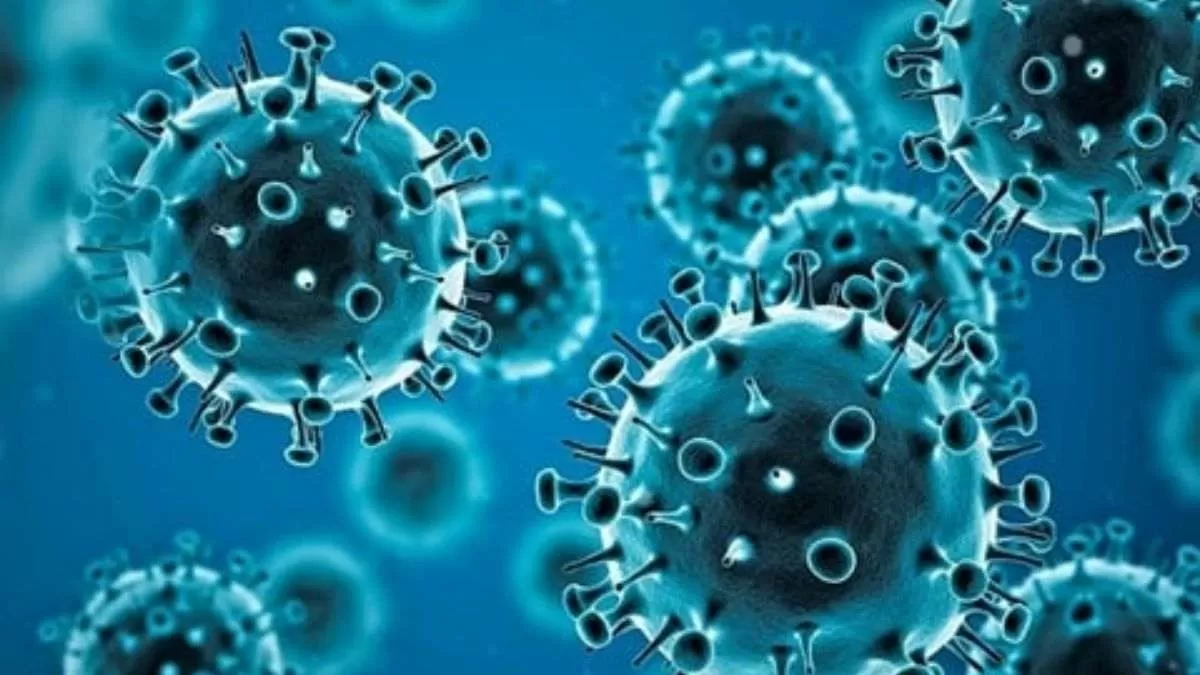JN.1 Variant, a descendant of BA.2.86, has raised concerns as it spreads, with mild symptoms reported so far. However, experts stress there is no need for panic, urging vigilance and adherence to preventive measures.
In groundbreaking news, the emergence of the JN.1 sub-variant of COVID-19, a descendant of BA.2.86, has prompted concerns among health experts. As of the latest update, India recorded 341 new cases in the last 24 hours, with a significant portion originating in Kerala. The Union Health Minister, Mansukh L. Mandaviya, convened a review meeting to address the escalating situation, emphasizing the importance of a collective and proactive approach.

Understanding COVID-19 Sub-Variant JN.1
The JN.1 variant, initially isolated and reported in November, was identified in the United States in September 2023. Experts, however, assure that there is no need to panic at this point. Although the variant is under scrutiny, the current low quantity of samples being collected across states raises a need for increased vigilance.
Mild Symptoms and Reassurance

The majority of JN.1 cases reported so far exhibit mild symptoms, such as fever, cough, runny nose, sore throat, body soreness, and fatigue. Experts emphasize that understanding the symptoms is crucial for early detection and timely intervention.
State-Specific Guidelines
Considering the surge in cases, different states are adopting specific guidelines to curb the spread. In Kerala, where the majority of cases have been reported, the Karnataka Covid-19 Technical Advisory Committee (TAC) has issued an advisory. It recommends individuals over the age of 60, especially those with co-morbidities, pregnant women, and lactating mothers, to wear face masks and avoid crowded and poorly ventilated spaces.
In New Delhi, doctors advocate for the simple yet effective measures of wearing masks, avoiding crowded areas, and maintaining a nutritious diet. Meanwhile, West Bengal assures the public that the COVID-19 situation is under control, and the state is well-prepared for any emergency.
Rajasthan’s Response and Surveillance Measures
The Rajasthan health department, in response to the discovery of the JN.1 sub-variant in certain Kerala patients, convened a review meeting. This proactive approach underscores the importance of swift action in tracking and managing emerging variants.
Health Secretary R. Rajesh Kumar of Uttarakhand reports no cases of the JN.1 subtype but highlights the need for strict adherence to operational requirements for the updated surveillance plan.
Union Health Minister’s Assurance and Guidance

Union Health Minister Mansukh L. Mandaviya extends the Centre’s support to all states, urging them to send samples of COVID-19 positive cases to INSACOG labs. This initiative aims to facilitate the tracking of new variants. He emphasizes the importance of creating awareness, managing the infodemic, and ensuring the dissemination of factually correct information.
Additionally, the Health Minister proposes mock drills of hospital preparedness, increased surveillance, and effective communication with the public. The plan is to conduct these drills in all hospitals once every three months, reinforcing the commitment to a proactive and well-prepared healthcare system.
WHO on JN.1 Variant: Designation as ‘Variant of Interest’ Amid Rising Cases

In response to the escalating cases of the Covid-19 sub-variant JN.1, the World Health Organization (WHO) has officially designated it as a “variant of interest” (VOI), distinct from its parent lineage BA.2.86, commonly known as Pirola. Initially considered part of the Pirola sub-lineages, the reclassification comes as JN.1 demonstrates a rapid increase in spread across multiple countries, prompting heightened vigilance.
The decision to classify JN.1 as a VOI underscores the importance of monitoring its behavior independently due to its rising prevalence. While WHO assured that there is currently no evidence suggesting additional public health risks associated with JN.1, it acknowledges the potential impact on respiratory infections, especially with the onset of winter in the Northern Hemisphere.
The official statement from WHO emphasizes that existing vaccines continue to provide protection against severe disease and death caused by the JN.1 variant. Despite the evolving landscape of Covid-19 variants, the efficacy of vaccines remains a critical component in managing the impact of emerging strains. The organization also clarified that a variant earns the designation of VOI if it exhibits a growth advantage over other circulating variants, indicating an increase in its proportion alongside the rising total number of cases.
The criteria for designating a variant as a VOI also encompass potential changes in characteristics such as transmissibility, virulence, antibody evasion, or susceptibility to therapies and diagnostics. As the situation evolves, ongoing surveillance and analysis become crucial in understanding the trajectory of JN.1 and its implications on public health.
WHO‘s proactive stance in monitoring and classifying emerging variants reflects a global commitment to staying ahead of the virus’s adaptive nature. The designation of JN.1 as a VOI serves as a signal for heightened awareness and continued research to ensure an effective public health response. In the midst of these developments, it remains imperative for individuals to stay informed, follow health guidelines, and contribute to collective efforts in mitigating the impact of emerging Covid-19 variants.
Stay Aware, Stay Safe
While the emergence of the JN.1 sub-variant raises concerns, there is no need for panic. Experts and health authorities encourage the public to stay informed, follow state-specific guidelines, and adopt precautionary measures.
Amid the ongoing situation, the emphasis is on collective responsibility and a ‘Whole of Government’ approach. By staying vigilant, adhering to guidelines, and promoting awareness, we can navigate through this challenging time. Let’s remain hopeful, follow the guidance of health experts, and together, we can overcome the challenges posed by emerging variants. Stay aware, stay safe.